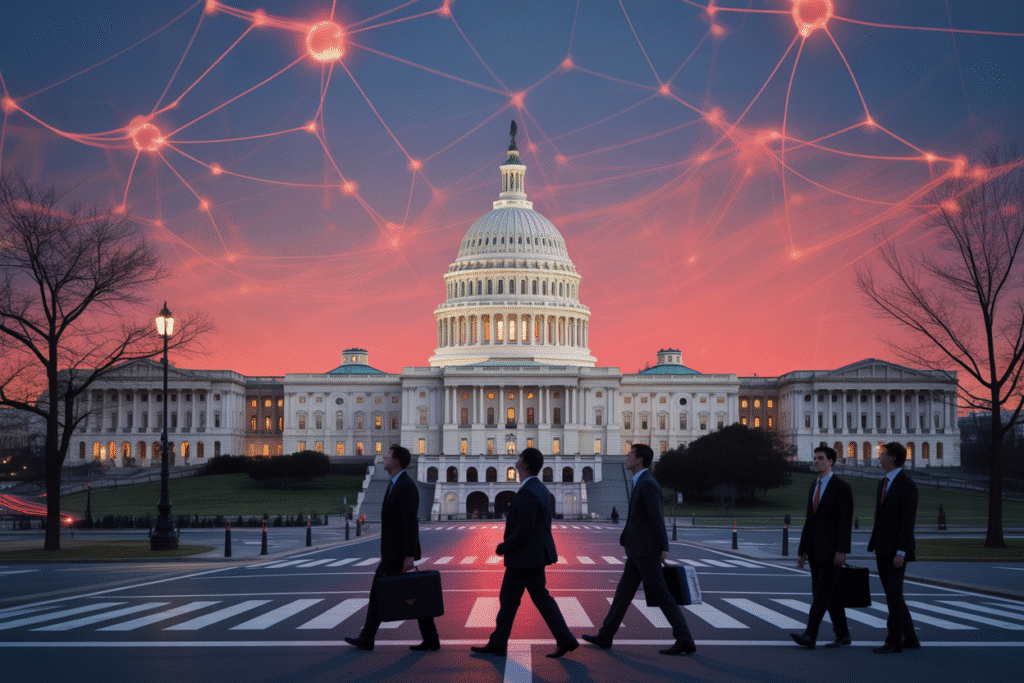AI may soon let us live to 150—but can our politics keep up? Explore the promise and chaos of longevity without a roadmap.
Imagine waking up tomorrow to headlines that scientists have cracked the code of aging—thanks to artificial intelligence. No more retirement at 65, no more watching loved ones fade. Sounds like science fiction, right? Yet a growing chorus of researchers, ethicists, and venture capitalists insists we’re closer than we think. The real twist: our political systems may not be ready for citizens who live to 150.
When AI Turns 90 into the New 40
Imagine waking up tomorrow to headlines that scientists have cracked the code of aging—thanks to artificial intelligence. No more retirement at 65, no more watching loved ones fade. Sounds like science fiction, right? Yet a growing chorus of researchers, ethicists, and venture capitalists insists we’re closer than we think. The real twist: our political systems may not be ready for citizens who live to 150. In this post we’ll unpack the promise, the peril, and the policy chaos that could follow if AI really does let us stick around for an extra lifetime or two.
The idea isn’t coming from fringe futurists alone. Recent posts from educators like VraserX have lit up social media, arguing that AI-driven medical breakthroughs could outpace the glacial speed of lawmaking. Picture algorithms designing bespoke gene therapies in hours, not decades. Meanwhile, regulators are still arguing over privacy rules written for the internet of 2005. That mismatch is where the fireworks—and the danger—begin.
So, what happens when your grandkids hit middle age and you’re still running marathons? Let’s dive in.
The Clock That Never Stops
First, the upside. AI excels at spotting patterns humans miss. Feed it millions of health records and it can flag the molecular culprits behind aging—think of it as a detective that never sleeps. Startups are already using machine learning to simulate how different drugs interact with our DNA, shaving years off traditional lab work.
The results? Early trials show senescent-cell removal therapies extending healthy lifespan in mice by 30%. Translate that to humans and we’re talking about an extra quarter-century of vitality, not just extra years in a rocking chair. Imagine the creativity unlocked if scientists, artists, and entrepreneurs could stay at peak performance for a century and a half.
But longevity isn’t just about adding candles to the birthday cake. It reshapes everything:
– Retirement savings designed for 20 years now need to stretch for 80.
– Career ladders become career vines—constant upskilling to stay relevant.
– Healthcare shifts from cure to continuous optimization, turning hospitals into longevity gyms.
Sounds utopian, yet the ripple effects could swamp our social safety nets faster than you can say “pension crisis.”
Policy Whiplash in the Age of Methuselah
Here’s where politics stumbles in, late and flustered. Lawmakers still treat life expectancy as a static number. Social Security in the U.S., for example, assumes most citizens will tap out around 83. If AI pushes that to 120—or beyond—the fund goes belly-up unless taxes skyrocket or benefits shrink.
Then there’s the job market. Fewer people dying means fewer openings for younger workers. Picture a 90-year-old software engineer who codes rings around new grads, all while drawing a pension. Great for GDP, terrible for twenty-somethings trying to pay off student loans. Do we cap working years? Offer lifelong learning stipends? Or let the market sort it out and risk generational warfare?
And don’t forget the ethical landmines:
– Who gets access first? Premium anti-aging treatments could widen the wealth gap into a chasm.
– Should living longer be a right or a purchasable privilege?
– Could governments mandate “life audits” to decide who receives costly therapies?
Taylor Lorenz recently warned that unchecked AI rollouts can create surveillance states. Now imagine that surveillance tracking not just your clicks, but your biological age in real time. The data gold rush for health insurers would make today’s privacy debates look quaint.
Yet the conversation can’t stop at fear. We need frameworks—fast. Some experts propose dynamic retirement ages tied to healthspan rather than birthdays. Others lobby for universal basic assets, giving every citizen a lifelong dividend to smooth out economic shocks. The boldest idea? Treat longevity as infrastructure, publicly funded like roads or clean water, ensuring breakthroughs benefit everyone, not just billionaires.
So, what can you do today? Start by asking candidates where they stand on AI governance. Support research that prioritizes equitable access. And maybe, just maybe, update that retirement plan—because 65 could soon be the new 35.
Ready to join the debate? Drop your thoughts below and let’s shape the future before it shapes us.


